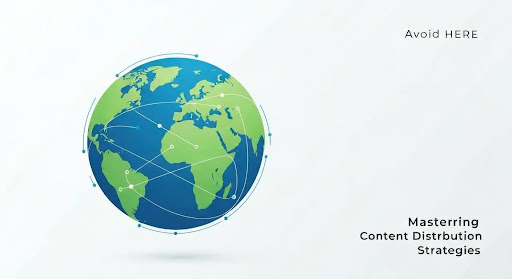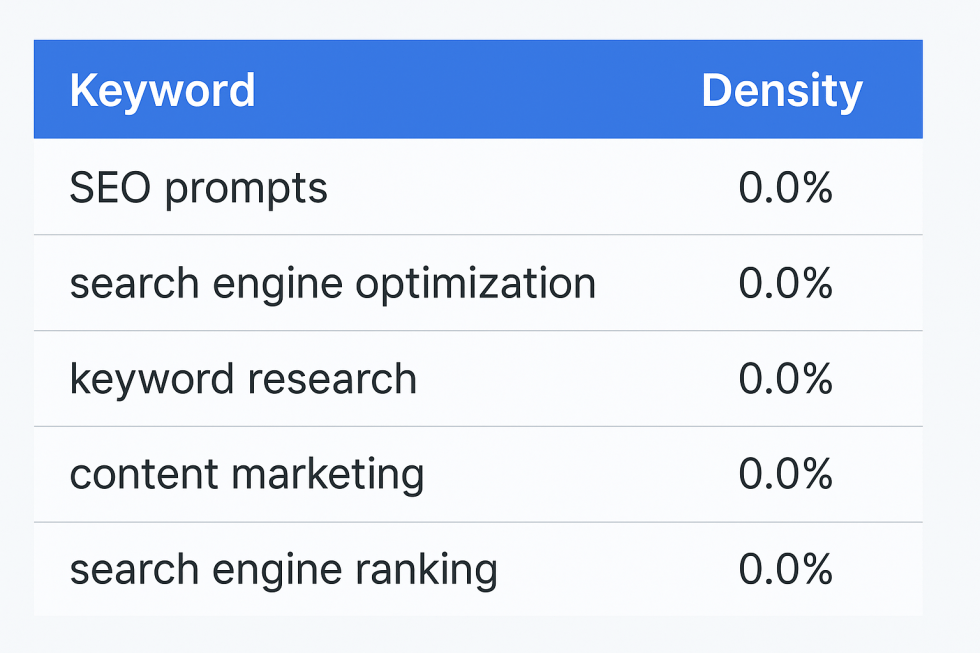
Content distribution is all about strategically sharing your valuable content across a variety of platforms to connect with more people and get them excited. This guide is about content strategies and will show you how to make sure every piece of content you create works hard for you, driving real, measurable results. We'll walk you through evaluating the most effective content distribution channels —from your own website and email lists to social media ads and influencer collaborations—using seven core strategic pillars. You'll get clear definitions, learn how to pinpoint your ideal audience, explore the power of owned, earned, and paid media, discover how to track success with the right metrics, and even peek into what's next. Plus, we'll show you how BKThemes' web development and SEO wizardry can supercharge your distribution efforts for lasting growth and a steady stream of leads.
Unlocking Your Content Distribution Channels
Content distribution is the art of strategically sharing your content across diverse platforms to expand your audience reach and deepen engagement. The primary avenues for this are owned, earned, and paid media, each playing a unique role in your overall strategy.
What Exactly Is Content Distribution, and Why Should You Care?
Content distribution is the smart process of getting your content in front of the right eyes, across multiple channels, to boost visibility, spark engagement, and hit your business objectives. When you align your distribution tactics with where your audience hangs out and what kind of content they love, you'll see your brand awareness soar, traffic climb, and conversions multiply.
What Are the Main Types of Content Distribution Channels?
There are three core types of content distribution channels: owned, earned, and paid media. Each offers a different blend of control, cost, and potential reach, serving distinct purposes within your grand strategy.
| **Channel Type** | **Your Level of Control** | **Cost Considerations** | **Potential Reach** |
| Owned Media | Complete command over content and its presentation | Minimal ongoing investment | Cultivating a loyal following, driving organic traffic through SEO |
| Earned Media | Indirect influence through third-party validation | Virtually no direct expense | Potential for viral spread, building significant credibility |
| Paid Media | Pinpoint accuracy in targeting with dedicated budgets | Varies based on campaign scope | Swift, scalable exposure to vast audiences |
Think of owned media as your website and email newsletters, earned media as social shares and mentions from others, and paid media as your targeted advertising campaigns. Understanding these differences is key to crafting a truly comprehensive distribution plan.
Diving into Owned Media
Owned media encompasses your own digital real estate, like your company website and blog. This is where you have total control over your message and how it's presented, making it vital for building direct connections with your audience and attracting traffic through search engines. In essence, try to make blogging fun and entertaining.
How Does a Smart Content Distribution Plan Give Your Business an Edge?
A well-thought-out content distribution plan ensures your content finds its way to the right channels and resonates with the right people, maximizing your return on investment. This strategic approach :
-
Amplifies your brand's presence by reaching potential customers exactly where they are.
-
Boosts engagement by delivering messages that are perfectly timed and tailored.
-
Drives more conversions by guiding interested prospects smoothly through their decision-making journey.
-
Builds lasting authority and trust through consistent, high-quality exposure.
Connecting these benefits to your specific objectives sets the perfect stage for diving into audience analysis in the next section.
How Do You Pinpoint and Truly Understand Your Target Audience for Content Distribution?
Getting to know your audience inside and out is the foundation of any successful distribution strategy. It allows you to fine-tune your content and choose the channels that will have the biggest impact.
What Key Demographics and Behaviors Should You Be Looking At?
Start by digging into the essential demographic details—like age, location, and industry—and then explore user behaviors such as their content preferences, the devices they use, and how they typically engage. Look for insights like: key insights on referring domains vs backlinks for seo.
-
The specific geographic regions and languages you need to reach.
-
The job titles and company sizes that represent your ideal customers.
-
Their browsing habits and the times they're most active online.
-
The types of content that consistently grab their attention and encourage shares.
Analyzing these elements will sharpen your channel choices and help you craft messages that truly connect with each audience segment, leading you seamlessly into mapping their journey.
How Do You Align Your Content with Each Stage of the Buyer's Journey?
Matching your content to the Awareness, Consideration, and Decision stages ensures you're always providing the most relevant information at the perfect moment :
| **Buyer's Journey Stage** | **Ideal Content Format** | **Main Goal** |
| Awareness | Engaging blog posts, informative infographics | To educate and attract initial interest |
| Consideration | In-depth webinars, valuable e-books | To nurture interest and provide deeper insights |
| Decision | Compelling case studies, insightful demos | To persuade and secure the conversion |
This strategic alignment significantly increases the chances of engagement and moving prospects forward, naturally guiding you toward setting clear distribution goals.
How Do You Set Crystal-Clear Content Distribution Goals and KPIs?
Define your success with SMART goals—Specific, Measurable, Achievable, Relevant, and Time-bound. This framework is crucial for tracking your progress. Keep an eye on these common Key Performance Indicators (KPIs) :
-
A breakdown of your traffic sources.
-
The volume of social shares and mentions your content receives.
-
Email open rates and click-through rates.
-
Conversion rates, such as leads generated or downloads completed.
-
The growth in your backlink profile and overall domain authority.
Establishing these metrics provides a baseline for optimization and helps you make informed decisions about where to invest your distribution efforts.
What Are the Top Owned Media Channels for Powerful Content Distribution?
Owned media channels give you complete creative control and build lasting value, allowing you to forge direct connections with your audience.
How Can You Supercharge Your Website and Blog for Maximum Content Reach?
Optimizing your website and blog involves a blend of technical SEO finesse and user-centric design to boost discoverability and keep visitors engaged:
-
Craft compelling meta titles and descriptions packed with relevant keywords.
-
Ensure your site is mobile-friendly and loads lightning-fast.
-
Structure your content logically with clear headings, smart internal links, and engaging multimedia.
-
Implement schema markup for articles and FAQs to stand out in search results.
These foundational optimizations pave the way for effective email and social media strategies that follow.
How Can Email Marketing Forge Direct Connections with Your Audience?
Email marketing is your direct line for one-to-one communication, encouraging repeat visits and nurturing relationships: 3 awesome reasons to consider.
-
Segment your subscriber lists based on their interests and past behavior.
-
Write attention-grabbing subject lines and preview text.
-
Include clear calls-to-action (CTAs) enhanced with personalized content.
-
Set up automated drip campaigns to guide prospects through the sales funnel.
Consistent and engaging email communication lays the groundwork for building a vibrant community on your social media channels.
How Do You Cultivate a Strong Social Media Presence on Your Own Profiles?
Building an organic social media presence fosters brand loyalty and extends your content's reach without incurring direct advertising costs: the right seo link-building strategy
-
Choose platforms where your target audience is most active (think LinkedIn for B2B, Instagram for visual brands).
-
Maintain a consistent posting rhythm and a unified brand voice.
-
Spark conversations with interactive posts like polls and Q&A sessions.
-
Keep a close eye on engagement metrics and adapt your content strategy accordingly.
A thriving social media presence also primes your content for effective repurposing.
What Are the Smartest Ways to Repurpose Content on Your Owned Channels?
Repurposing content breathes new life into your existing assets, extending their reach and maximizing their impact :
-
Transform detailed blog posts into eye-catching infographics or concise videos.
-
Bundle related articles into comprehensive e-books or downloadable guides.
-
Break down lengthy webinars into short, shareable social media clips.
-
Refresh your most popular posts with updated data and new visuals.
The Art of Content Repurposing
Content repurposing is the clever practice of reusing existing content in various formats to broaden its reach and unlock its full potential. This strategy is brilliant for connecting with new audiences and giving your SEO efforts a significant boost.
How Can Earned Media Tactics Amplify Your Content Distribution Efforts?
Earned media harnesses the power of third-party validation to amplify your message far beyond your own platforms.
Harnessing Earned Media
Earned media leverages the credibility of others to amplify your message, often through organic social shares and valuable backlinks. This type of exposure is absolutely crucial for boosting brand awareness and establishing your authority in the market.
How Does Guest Posting Expand Your Content's Reach?
Contributing guest posts to reputable industry sites not only broadens your audience but also generates valuable backlinks :
-
Identify industry blogs that boast engaged and relevant readership.
-
Pitch compelling topics that showcase your unique expertise.
-
Strategically include contextual links back to your most important content.
-
Coordinate your guest posting schedule with your overall distribution calendar for maximum synergy.
High-quality guest contributions naturally complement your efforts in building backlinks and securing media mentions.
What Are the Most Effective Strategies for Earning Backlinks and Media Mentions?
Securing backlinks and media mentions significantly boosts your website's authority and drives valuable referral traffic:
-
Develop original research or surveys that naturally attract citations.
-
Implement digital PR tactics to land press features and interviews.
-
Actively participate in platforms like HARO (Help A Reporter Out) to offer expert insights.
-
Monitor mentions of your brand and proactively request link placements where appropriate.
These powerful tactics pave the way for fruitful influencer collaborations.
How Can You Partner with Influencers to Promote Your Content?
Influencer marketing taps into established audiences, leveraging their social proof to build trust :
-
Thoroughly research influencers whose brand values genuinely align with yours.
-
Propose collaborative content ideas, such as joint live events, product reviews, or account takeovers.
-
Clearly define deliverables, messaging guidelines, and the metrics you'll use to measure success.
-
Coordinate with influencers for simultaneous content launches across their channels.
Strategic influencer partnerships can also generate valuable user-generated content (UGC), further amplifying your distribution.
How Can User-Generated Content Supercharge Your Distribution Efforts?
User-generated content (UGC) is a goldmine for authenticity and deep audience engagement:
-
Launch social media challenges or contests that encourage user submissions.
-
Curate glowing customer reviews and compelling testimonials as easily shareable assets.
-
Showcase the best UGC prominently on your website and in your newsletters.
-
Reward your most enthusiastic contributors to foster ongoing participation.
UGC not only enriches your content ecosystem but also provides fantastic fuel for your paid media campaigns.
What Paid Media Strategies Deliver Highly Targeted Content Promotion?
Paid media ensures your content reaches precisely the right audience and provides scalable visibility for your most important assets.
Leveraging Paid Media
Paid media involves using advertisements and sponsorships to achieve highly precise audience targeting and scalable exposure. This approach guarantees your content connects with the intended audience, which is absolutely vital for effective, targeted content promotion.
How Can You Effectively Use Social Media Advertising for Content Distribution?
Paid social media ads offer incredibly granular targeting options based on demographics, interests, and behaviors:
-
Select ad formats that best match your content objectives (e.g., carousels for guides, video ads for tutorials).
-
Set clear, conversion-focused objectives, such as link clicks, video views, or lead generation.
-
Utilize lookalike audiences to expand your reach to similar potential customers.
-
Continuously refine your ad creative and targeting based on real-time performance data.
Mastering Social Media Advertising
Paid social ads provide incredibly precise targeting based on demographics, interests, and behaviors. This enables highly accurate audience targeting and scalable visibility for your key content assets.
What Role Does Search Engine Marketing (SEM) Play in Promoting Your Content?
SEM uses paid search ads to position your content prominently at the very top of search engine results pages:
-
Bid on keywords that indicate high purchase intent related to your content themes.
-
Write ad copy that directly mirrors search queries and includes compelling calls-to-action.
-
Employ ad extensions to highlight valuable resources like e-books or webinars.
-
Monitor your Quality Score and optimize your landing pages for maximum relevance.
Strategic Search Engine Marketing (SEM)
SEM utilizes paid search to place your content at the forefront of search results. This strategy is highly effective for driving targeted traffic to your website or specific landing pages.
How Can You Effectively Use Sponsored Content and Native Advertising?
Sponsored content and native advertising are designed to blend seamlessly into the user's browsing experience: bkthemes
-
Collaborate with trusted publishers for sponsored articles or featured placements.
-
Ensure your creative content aligns with the host platform's style and audience expectations.
-
Weave in your brand's story naturally, avoiding overly aggressive sales language.
-
Track key engagement metrics like time on page, shares, and subsequent conversions.
These sophisticated tactics naturally lead to content syndication for even broader amplification.
What Are Content Syndication Platforms, and How Do They Work Their Magic?
Content syndication platforms republish your valuable content across a network of partner sites :
-
Choose reputable networks that align perfectly with your target audience.
-
Utilize syndication feeds or establish partnerships with relevant industry portals.
-
Implement canonical tags correctly to ensure all SEO value flows back to your original source.
-
Carefully measure referral traffic and the quality of leads generated from each syndication partner.
Smart Content Syndication
Content syndication platforms republish your assets across partner networks. This effectively extends your paid campaigns into new digital ecosystems and channels, significantly amplifying your content distribution.
How Do You Measure and Continuously Optimize Your Content Distribution Performance?
Consistent measurement and ongoing refinement are essential to ensure every distribution channel is actively contributing to your overarching goals.
What Crucial Key Performance Indicators (KPIs) Should You Be Tracking?
Focus on tracking KPIs that directly align with your specific distribution objectives :
-
Reach metrics: Track impressions, unique visitors, and subscriber growth.
-
Engagement metrics: Monitor clicks, time spent on page, and social interactions.
-
Conversion metrics: Measure form submissions, demo requests, and purchases.
-
SEO metrics: Keep an eye on keyword rankings, backlink growth, and domain authority.
Essential Key Performance Indicators (KPIs)
Setting clear SMART goals and diligently tracking KPIs, such as traffic sources, social shares, and conversion rates, is fundamental to accurately measuring the success of your content distribution efforts.
How Can You Effectively Use Analytics Tools Like Google Analytics and Social Insights?
Analytics platforms provide the critical data needed for ongoing improvement and strategic decision-making :
-
Configure Google Analytics goals and event tracking to monitor content downloads and other key actions.
-
Utilize UTM parameters meticulously to accurately attribute traffic sources.
-
Dive into social platform insights to understand post engagement and audience demographics.
-
Create custom dashboards to visualize your multi-channel performance at a glance.
This data-driven analysis lays the perfect groundwork for implementing effective A/B testing.
What Are the Best Practices for A/B Testing and Driving Continuous Improvement?
A/B testing allows you to refine your distribution tactics through carefully controlled experiments :
-
Identify a single variable you want to test (e.g., a headline, CTA, or image).
-
Divide your audience into two equal groups and run the tests simultaneously.
-
Measure the impact on your target KPIs, such as click-through rates or conversion rates.
-
Implement the winning variation and then iterate by testing new hypotheses.
The Power of A/B Testing
A/B testing is the key to refining your distribution tactics through controlled experiments. This iterative approach is essential for achieving continuous improvement and maximizing results.
How Can You Conduct Content Audits and Refresh Content for Lasting Relevance?
Regular content audits are vital for maintaining peak performance and uncovering new opportunities :
-
Catalog all your existing content assets and assess their performance.
-
Update outdated statistics, optimize on-page SEO elements, and enhance visuals.
-
Consolidate any overlapping content to streamline your site's structure.
-
Republish refreshed content with current date tags to signal its freshness to search engines.
Keeping your content relevant and up-to-date prepares you to effectively capitalize on emerging trends.
What Emerging Trends Are Shaping the Future of Content Distribution?
Staying at the forefront of innovation ensures your distribution strategy remains sharp, effective, and competitive. link building strategy
How Is AI Revolutionizing Content Distribution and Personalization?
AI-powered marketing is automating distribution workflows and delivering hyper-personalized user experiences: AI to enhance your SEO campaign
-
Employ machine learning algorithms to recommend content based on individual user behavior.
-
Deploy intelligent chatbots to offer content suggestions in real time.
-
Leverage predictive analytics to determine the optimal times and channels for content delivery.
-
Integrate AI-driven content creation tools for rapid scaling and efficiency.
AI's Impact on Content Distribution
AI-driven marketing automates distribution workflows and personalizes user experiences, leading to significantly enhanced visibility, increased engagement, and sustained business growth.
Why Are Video-First and Short-Form Content Strategies Taking Center Stage?
Video-first and short-form content formats are incredibly effective at capturing attention and driving shareability:
-
Platforms like TikTok and Instagram Reels are prioritizing vertical video content.
-
Bite-sized content perfectly caters to today's shorter attention spans.
-
Video content often achieves higher visibility in universal search results with rich snippets.
-
Repurposing longer videos into shorter clips maximizes the value of your existing assets.
The Rise of Video-First Content Strategy
Video-first and short-form formats are dominating by capturing attention and driving shareability. This represents a major, ongoing trend in content distribution.
What Is Answer Engine Optimization (AEO), and How Does It Affect Distribution?
AEO focuses on optimizing your content to be easily understood and surfaced by AI-powered answer services:
-
Structure your content around clear questions and provide concise, direct answers.
-
Use semantic headings and bulleted lists to help search engines easily parse information.
-
Offer clear definitions and relevant examples that align with conversational search queries.
-
Monitor AI overviews and adjust your content to ensure it's included.
Smart Answer Engine Optimization (AEO)
AEO centers on optimizing content for AI-powered answer services. This ensures your content is readily interpreted and cited by these advanced AI tools.
How Can Interactive Content Elevate Audience Engagement?
Interactive formats transform passive content consumption into active, engaging participation :
-
Incorporate quizzes, calculators, and polls directly into your landing pages.
-
Develop engaging choose-your-own-path guides or self-assessments.
-
Embed shoppable videos or immersive AR experiences to drive conversions.
-
Analyze user interaction data to further refine your content personalization efforts.
Engaging Interactive Content
Interactive formats turn passive viewing into active participation. This significantly enhances audience engagement and fosters a more memorable connection with your content.
By skillfully blending owned, earned, and paid distribution channels, you'll position your content for maximum reach and genuine engagement.
By aligning audience insights with the buyer's journey, leveraging bkthemes.design's expert web development and SEO services for technical excellence, and consistently measuring performance with the right KPIs, you'll construct a scalable framework that drives traffic, builds authority, and generates valuable leads.
Ready to take your content distribution strategy to the next level? Book a consultation with our team to discover tailored solutions designed to accelerate your growth and deliver measurable, impactful results.
[dsm_faq dsm_make_accordion_toggle="on" dsm_enable_schema_markup="on" dsm_animate_icon="on" dsm_icon_placement="right" _builder_version="4.27.4" _module_preset="default" header_level="h4" header_font="Russo One||||||||" global_colors_info="{}"][dsm_faq_child dsm_title="What are the benefits of using a multi-channel content distribution strategy?" dsm_content="
A multi-channel content distribution strategy allows you to reach a broader audience by leveraging various platforms. Each channel has its unique audience and engagement style, which means your content can resonate differently across them. This approach not only increases visibility but also enhances brand recognition and credibility. By diversifying your distribution, you can also mitigate risks associated with relying on a single channel, ensuring that your content remains accessible even if one platform's performance declines.
" _builder_version="4.27.4" _module_preset="default" global_colors_info="{}"][/dsm_faq_child][dsm_faq_child dsm_title="How can I measure the effectiveness of my content distribution efforts?" dsm_content="
To measure the effectiveness of your content distribution, focus on key performance indicators (KPIs) such as traffic sources, engagement rates, conversion rates, and social shares. Tools like Google Analytics can help track user behavior and traffic patterns, while social media insights provide data on post engagement. Regularly reviewing these metrics allows you to identify which channels are performing well and which need adjustment, enabling you to optimize your strategy for better results over time.
" _builder_version="4.27.4" _module_preset="default" global_colors_info="{}"][/dsm_faq_child][dsm_faq_child dsm_title="What role does audience segmentation play in content distribution?" dsm_content="
Audience segmentation is crucial for effective content distribution as it allows you to tailor your messaging to specific groups based on demographics, interests, and behaviors. By understanding the unique needs and preferences of each segment, you can create more relevant and engaging content that resonates with them. This targeted approach not only improves engagement rates but also enhances the likelihood of conversions, as your audience feels that the content speaks directly to their interests and challenges.
" _builder_version="4.27.4" _module_preset="default" global_colors_info="{}"][/dsm_faq_child][dsm_faq_child dsm_title="How can I ensure my content is optimized for search engines during distribution?" dsm_content="
To optimize your content for search engines during distribution, focus on incorporating relevant keywords naturally throughout your content, including in titles, headings, and meta descriptions. Additionally, ensure that your content is structured with clear headings and subheadings, making it easier for search engines to crawl. Implementing schema markup can also enhance visibility in search results. Regularly updating your content and monitoring its performance will help maintain its relevance and ranking over time.
" _builder_version="4.27.4" _module_preset="default" global_colors_info="{}"][/dsm_faq_child][dsm_faq_child dsm_title="What are some effective ways to repurpose content for different platforms?" dsm_content="
Repurposing content involves transforming existing assets into various formats to reach different audiences. For example, a detailed blog post can be turned into an infographic, a video, or a series of social media posts. You can also compile related articles into an e-book or create short clips from longer webinars. This strategy not only maximizes the value of your content but also caters to different audience preferences, increasing overall engagement and reach.
" _builder_version="4.27.4" _module_preset="default" global_colors_info="{}"][/dsm_faq_child][dsm_faq_child dsm_title="How can I leverage analytics tools to improve my content distribution strategy?" dsm_content="
Analytics tools like Google Analytics and social media insights provide valuable data that can inform your content distribution strategy. By analyzing user behavior, traffic sources, and engagement metrics, you can identify which content resonates most with your audience. This information allows you to refine your distribution tactics, optimize content for better performance, and make data-driven decisions about where to focus your efforts for maximum impact.
" _builder_version="4.27.4" _module_preset="default" global_colors_info="{}"][/dsm_faq_child][dsm_faq_child dsm_title="What emerging technologies should I consider for enhancing content distribution?" dsm_content="
Emerging technologies such as artificial intelligence (AI) and machine learning are revolutionizing content distribution by enabling hyper-personalization and automation. AI can analyze user behavior to recommend content tailored to individual preferences, while chatbots can provide real-time content suggestions. Additionally, interactive content formats, like quizzes and polls, can enhance engagement. Staying updated on these technologies will help you leverage new opportunities for reaching and engaging your audience effectively.
" _builder_version="4.27.4" _module_preset="default" global_colors_info="{}"][/dsm_faq_child][/dsm_faq]
📧 Stay Updated
Get the latest web development tips and insights delivered to your inbox.




